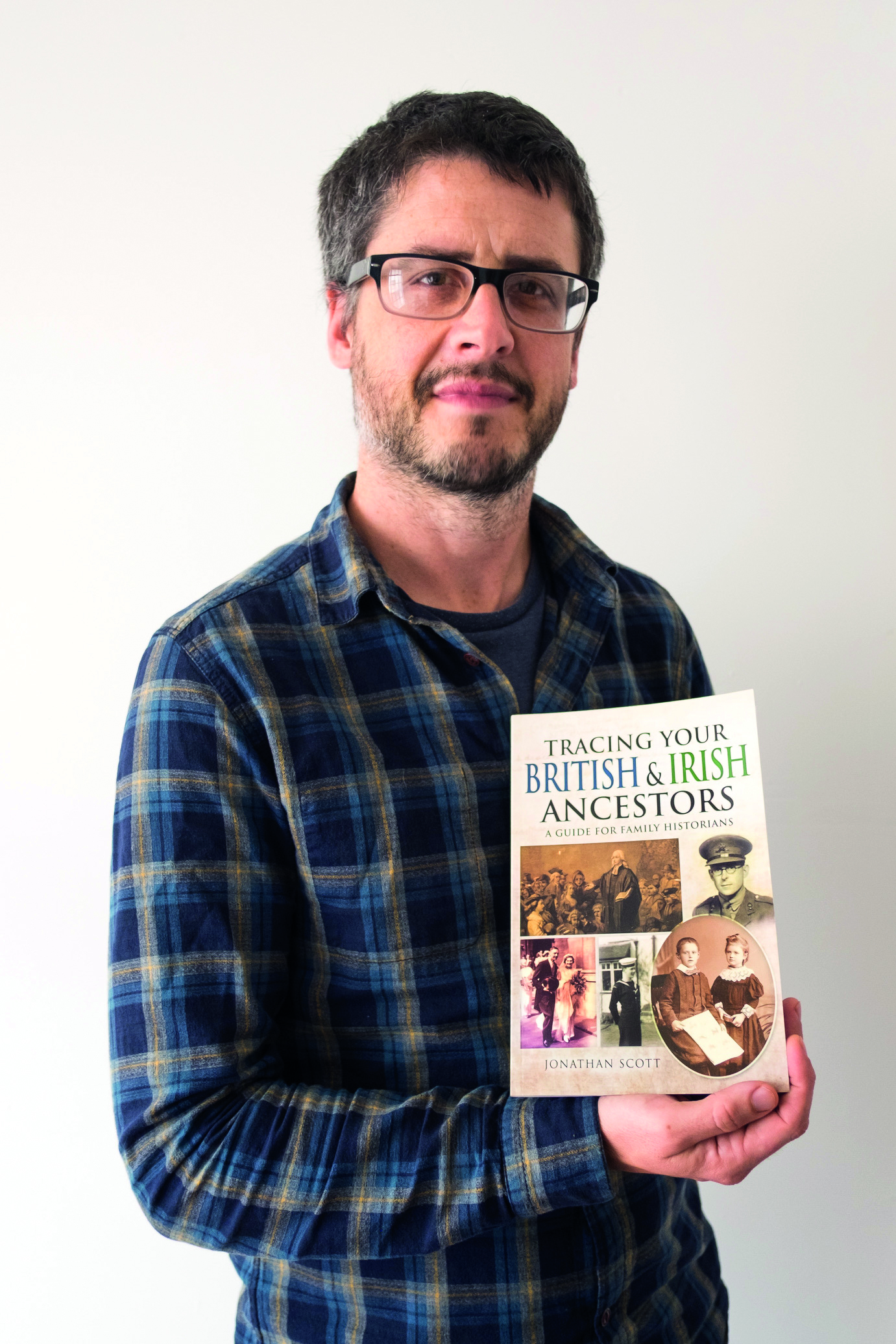The Holocaust is perhaps the greatest atrocity in human history. Between 1941 and 1945 some six million Jews – around two-thirds of Europe’s Jewish population – and eleven million others, including Slavs, Roma, people with disabilities, LGBT people and political dissidents, were systematically imprisoned and murdered by the German Nazi regime and their collaborators.
Many people alive today have family members murdered in the Holocaust whose exact final fate is unknown. As the Holocaust passes out of living memory, these organisations are working to preserve the records of the genocide and ensure that the victims are never forgotten.
1. Arolsen Archives
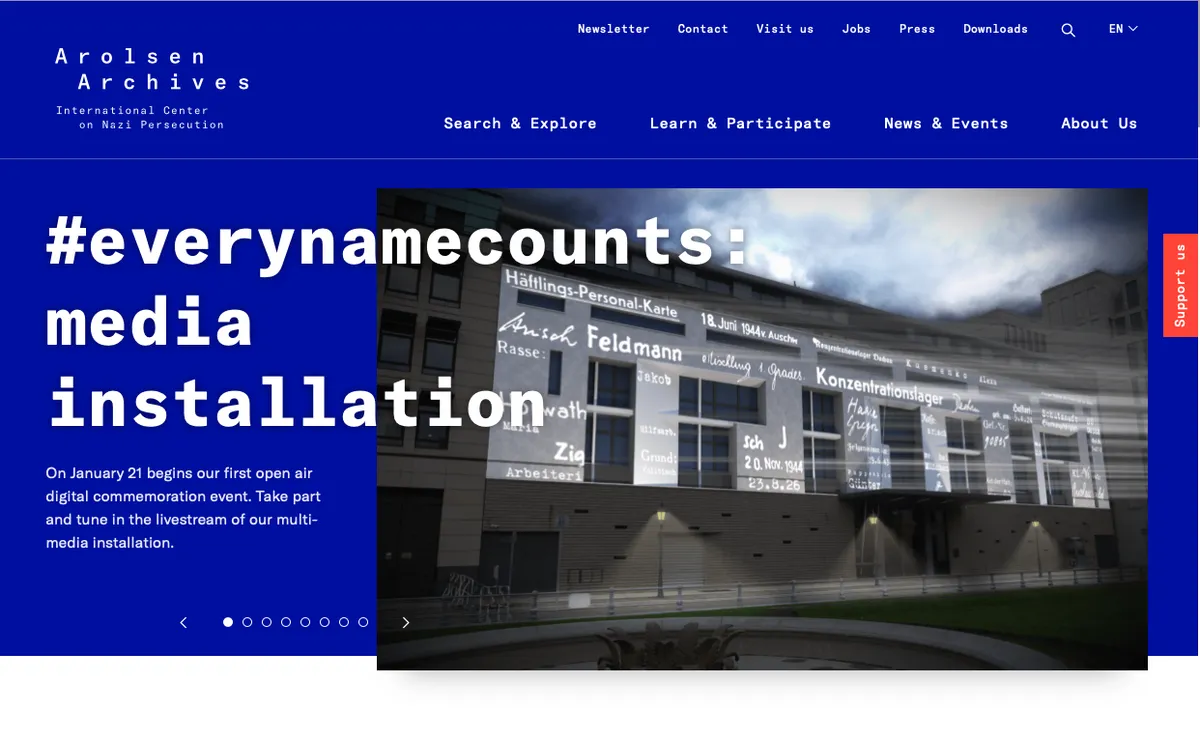
The German town of Bad Arolsen holds the world’s largest archive on the victims and survivors of the Nazis, with information on about 17.5 million people, comprising some 30 million original documents. The archive (formerly the International Tracing Service archive) opened for research in 2007. A great deal of the material is already available to search for free. The focus to date has been on collections of “particular public interest”, namely records from concentration camps and ghettos, as well as educational material, such as documents relating to death marches, which can be searched using maps. Via the ‘General Inventory’ section, you can learn more about documents that are not yet in the online archive.
2. Yad Vashem
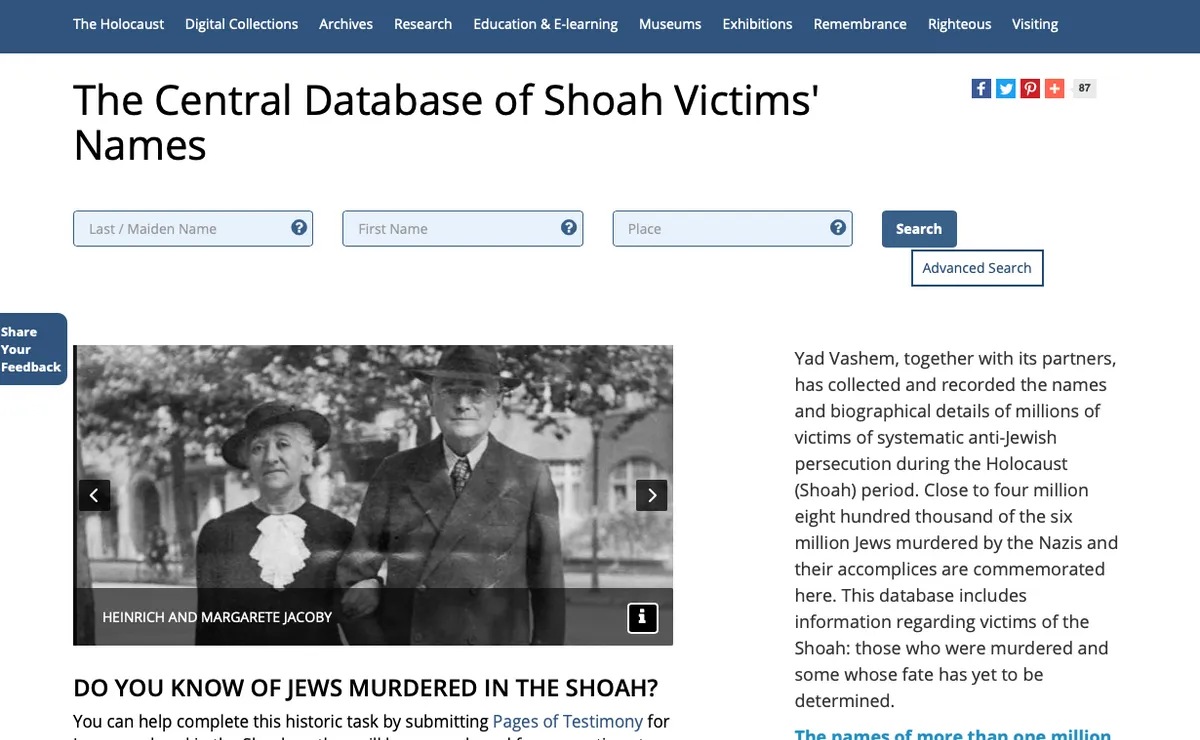
For some 70 years Yad Vashem, the World Holocaust Remembrance Center, has been working to recover the names of the six million Jews who died in the Holocaust. The website hosts the Shoah Victims’ Names Recovery Project, which aims to memorialise each murdered Jew by recording their name, biographical details and photograph on special ‘Pages of Testimony’ forms. Ultimately this is seeking to expand on the 4.8 million victims who are already documented in the Central Database of Shoah Victims’ Names. This sits alongside an online photo archive, a documents archive, an online catalogue, a deportation database and survivor testimonies.
3. Every Name Counts
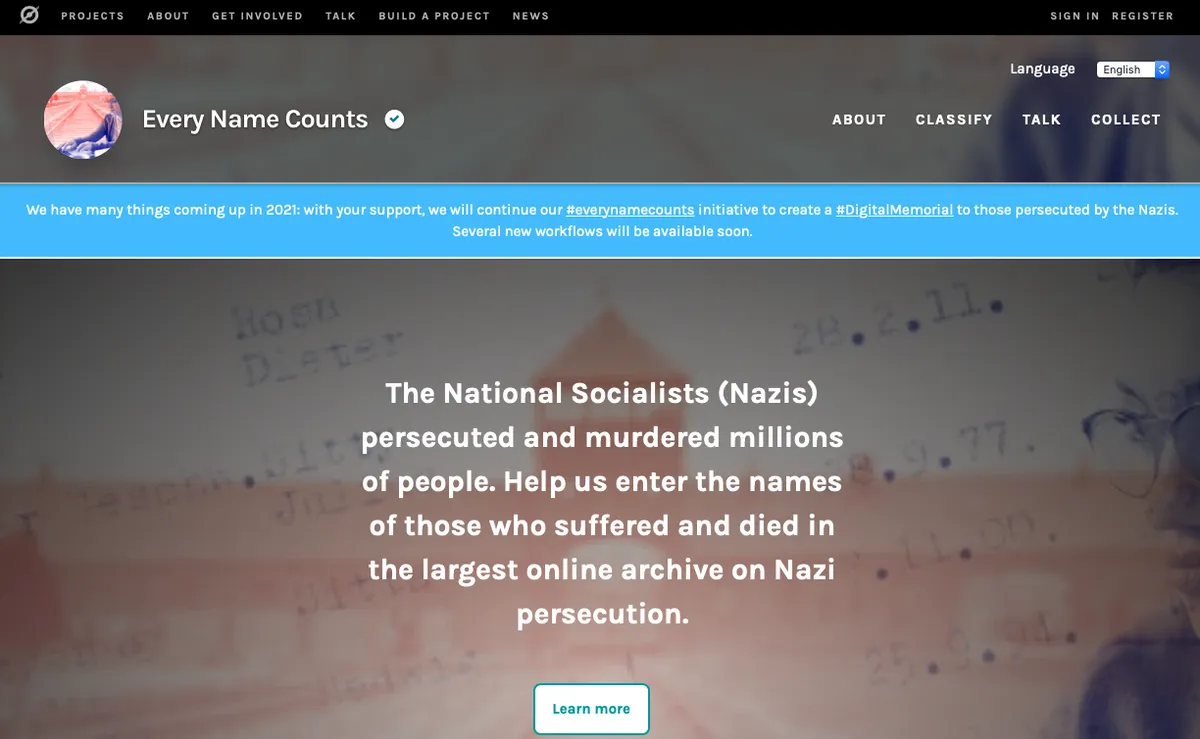
Featuring as one of our four partner projects for Transcription Tuesday 2021, this crowdsourcing project is seeking to transcribe and index data from the Dachau records looked after by the aforementioned Arolsen Archives. These include prisoners’ registration forms and the camp’s central card index. Specifically the project seeks to expand on surname and first name, date and place of birth, and prisoner number, by also digitising additional information sometimes included on these documents. This includes prisoner category, nationality, profession and family background.
4. Wiener Holocaust Library
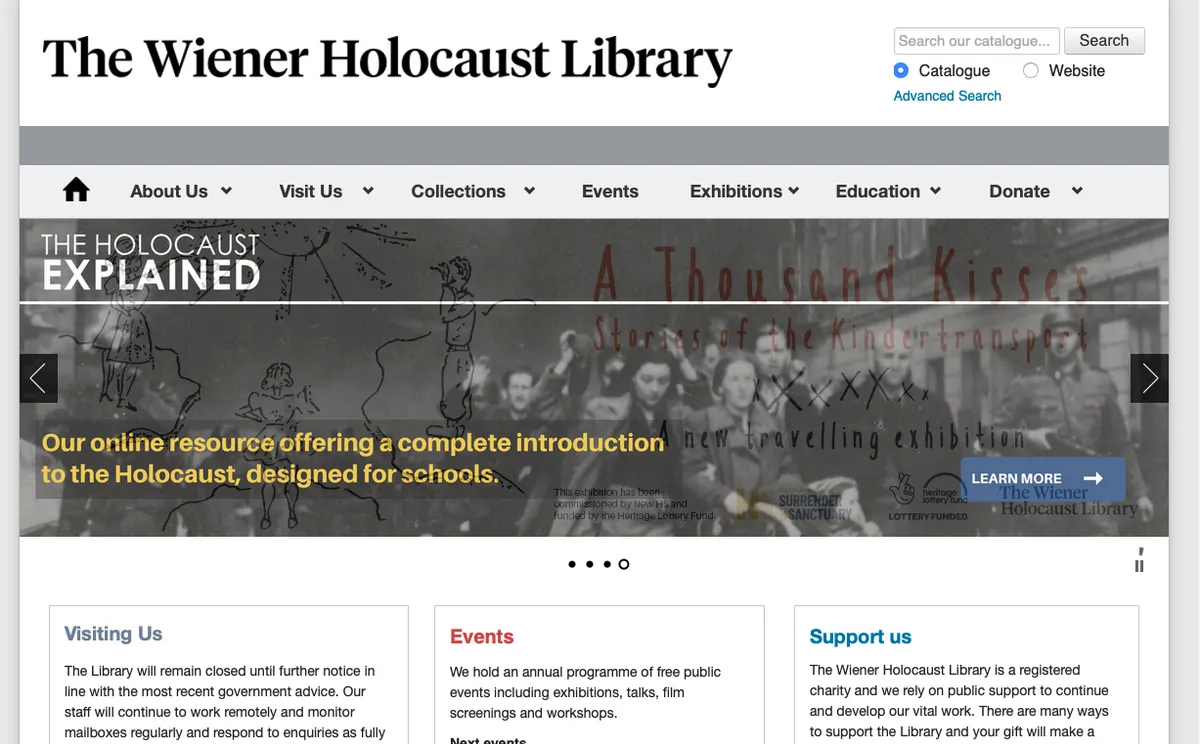
Based in Russell Square, Bloomsbury, West London, the library looks after archives, published and unpublished works, cuttings, photographs and eyewitness testimony on the Holocaust and Nazi era. It also has material relating to other cultures persecuted by the regime: a 2019–2020 ‘Forgotten Victims’ exhibition focused on the Roma and Sinti. They have also launched Testifying to the Truth, an online database of over 1000 eyewitness accounts of Nazi persecution and genocide, now translated into English for the first time, and an online map of family documents.
5. The United States Holocaust Memorial Museum
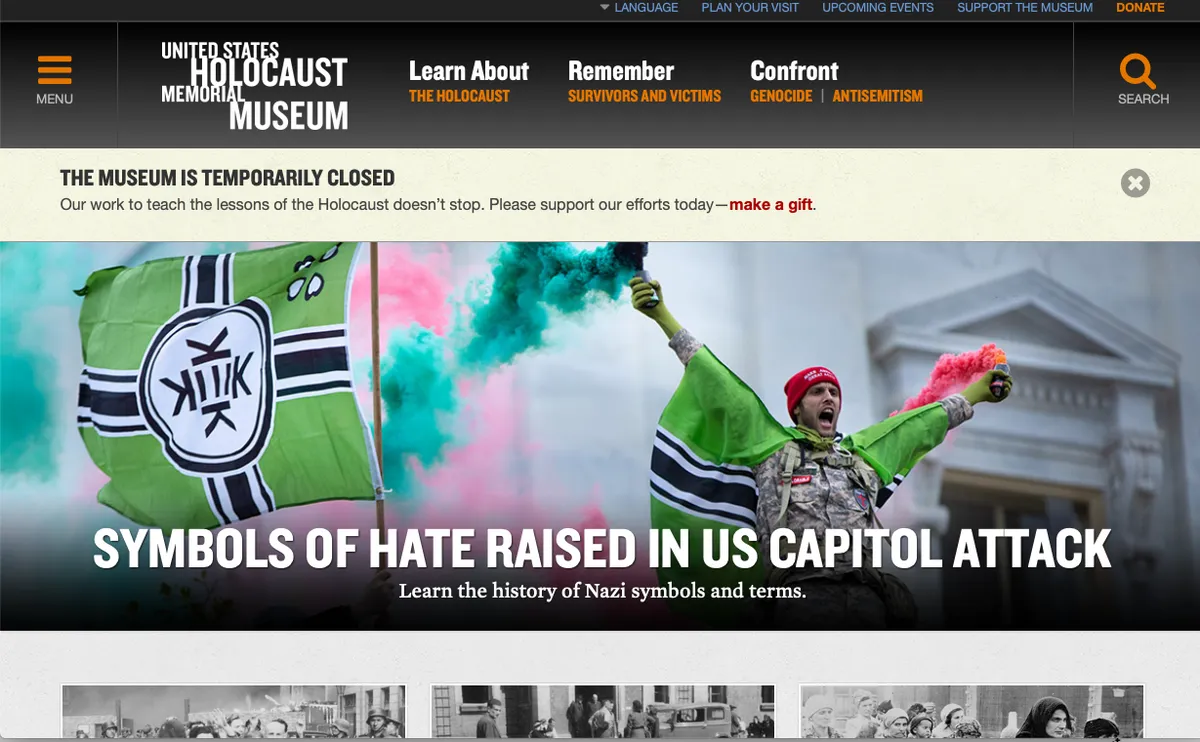
The website of the official US memorial to the Holocaust in Washington DC includes all sorts of fascinating online exhibitions. The highlight from a research perspective is the Database of Holocaust Survivor and Victim Names, which contains records of persecuted populations during the Second World War. It includes Jews, Roma and Sinti, Poles and other Slavic peoples, as well as Soviet prisoners of war, people with disabilities, political prisoners, leaders of trade unions, the clergy, homosexuals and criminals. The site also hosts the long-running Remember Me project, which aims to identify young people who survived the Holocaust.
6. Expert's choice: JewishGen
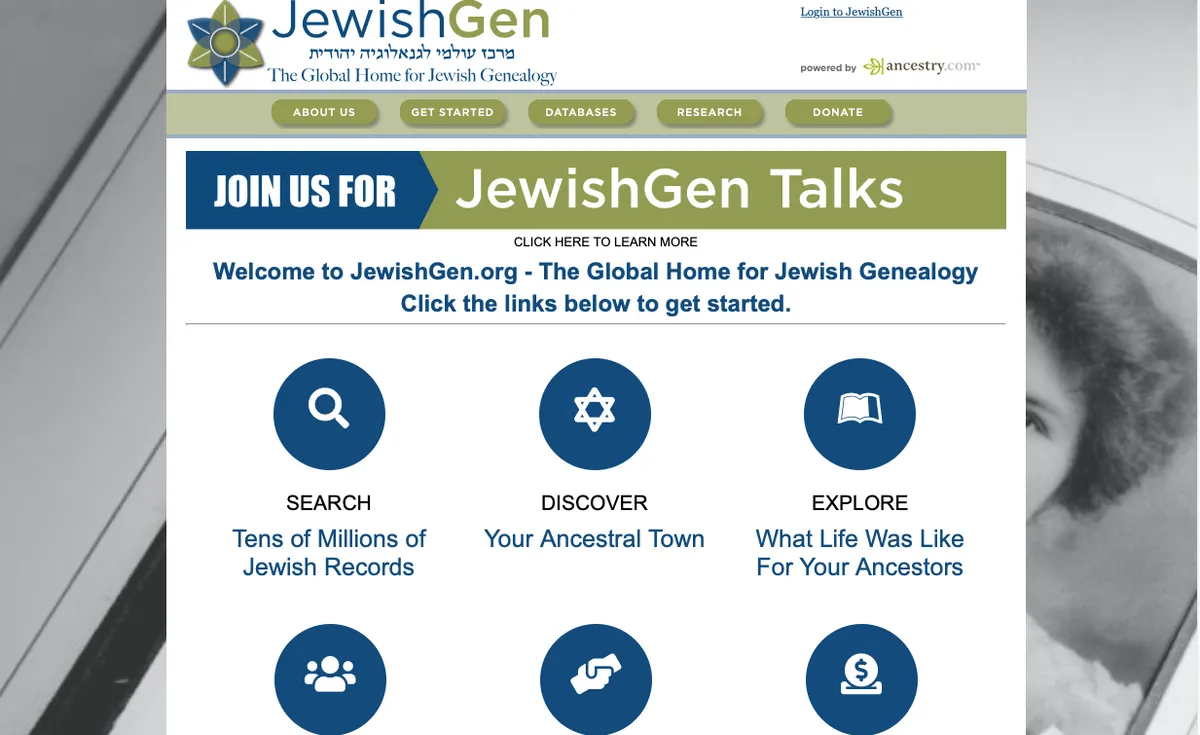
Chosen by Jeanette R Rosenberg OBE:
"JewishGen might not be the first website that you think of when it comes to researching relations who were caught up in the Holocaust, but it is one of the more important ones. The Holocaust InfoFiles offer 15 topics to help your research and provide contextual advice. Three of these can be found on the website: the Holocaust Database, the Yizkor Book Project and the Yizkor Book Necrology Database.
"The Holocaust Database contains information about Holocaust victims and survivors, and holds over 2.75 million entries drawn from more than 190 component datasets.
"Yizkor Books are invaluable to genealogists. They were written after the Holocaust as memorials to Jewish communities that were destroyed, and were usually put together by Holocaust survivors. They contain descriptions and histories of the community, biographies of prominent people, lists of the people who perished and so on. The books often include photos, maps and other memorabilia.
"The Yizkor Book Project exists to facilitate access to Yizkor Books and the information contained within them. The Necrology Database indexes the names of people published in Yizkor Books in the Yizkor Book Translation Project. This database directs researchers back to the Yizkor Book itself, where more complete information can be found. Importantly, the database allows surnames to be searched using soundex, because most of the names were transliterated from Hebrew and Yiddish, and their spellings may not be as we are used to seeing them written."
Jonathan Scott is the author of A Dictionary of Family History
